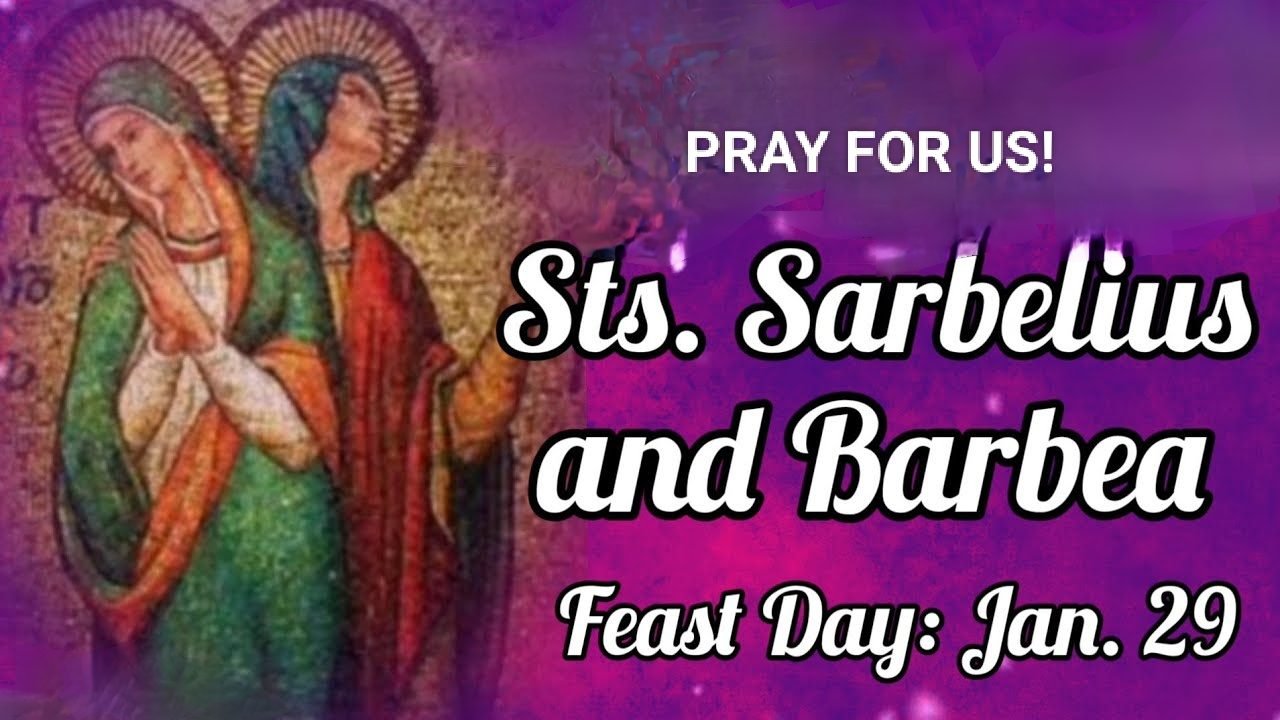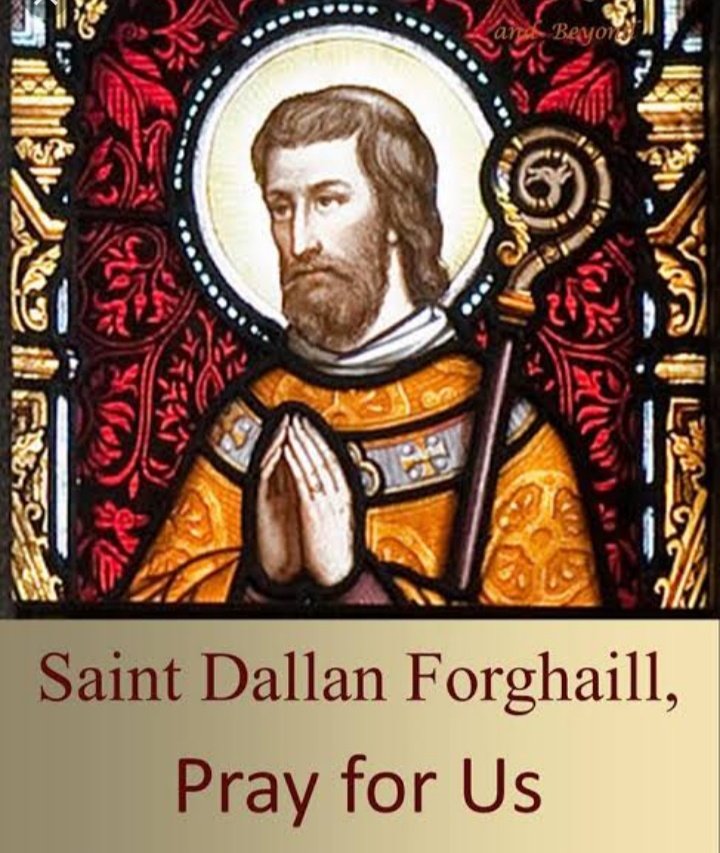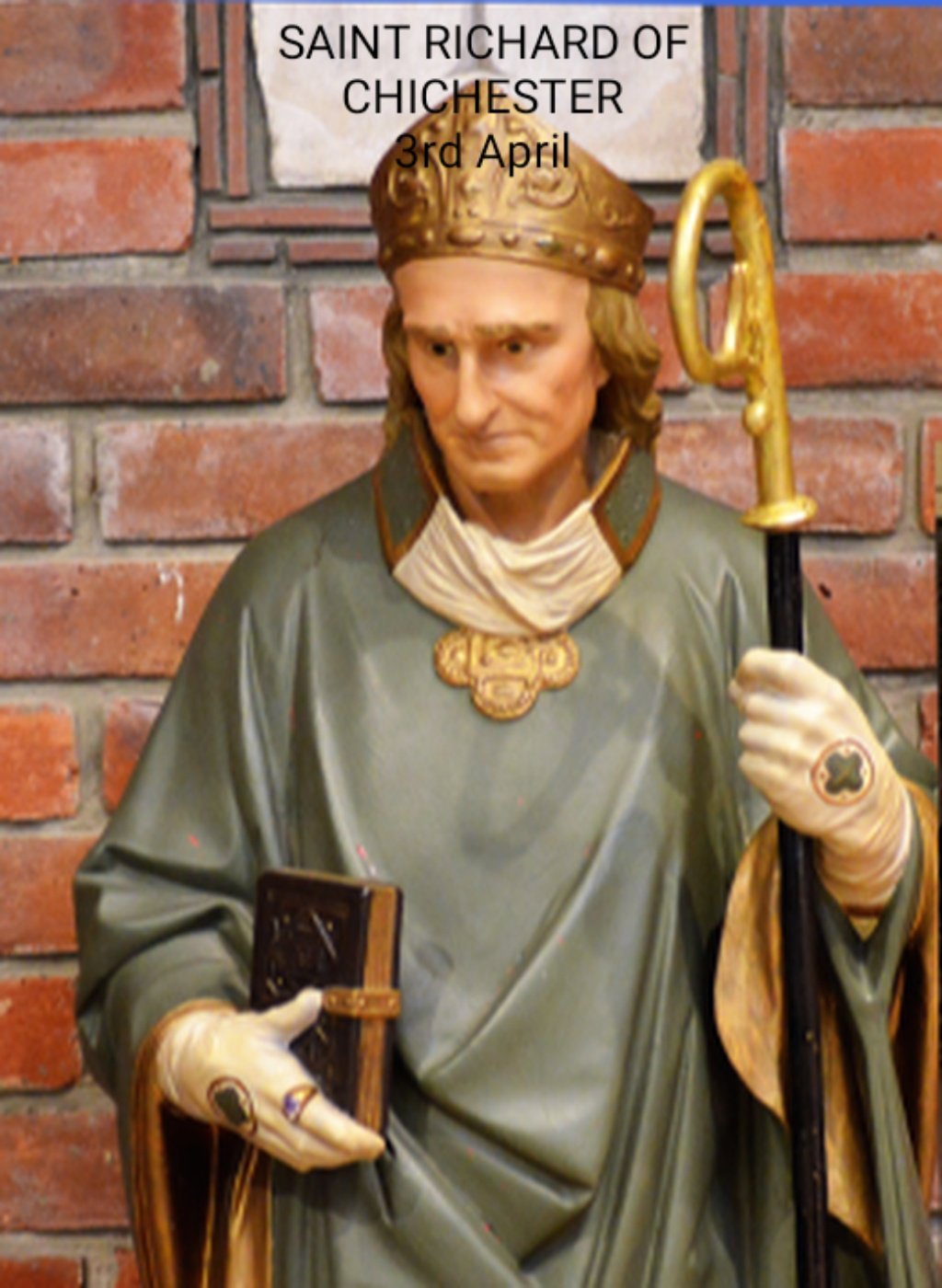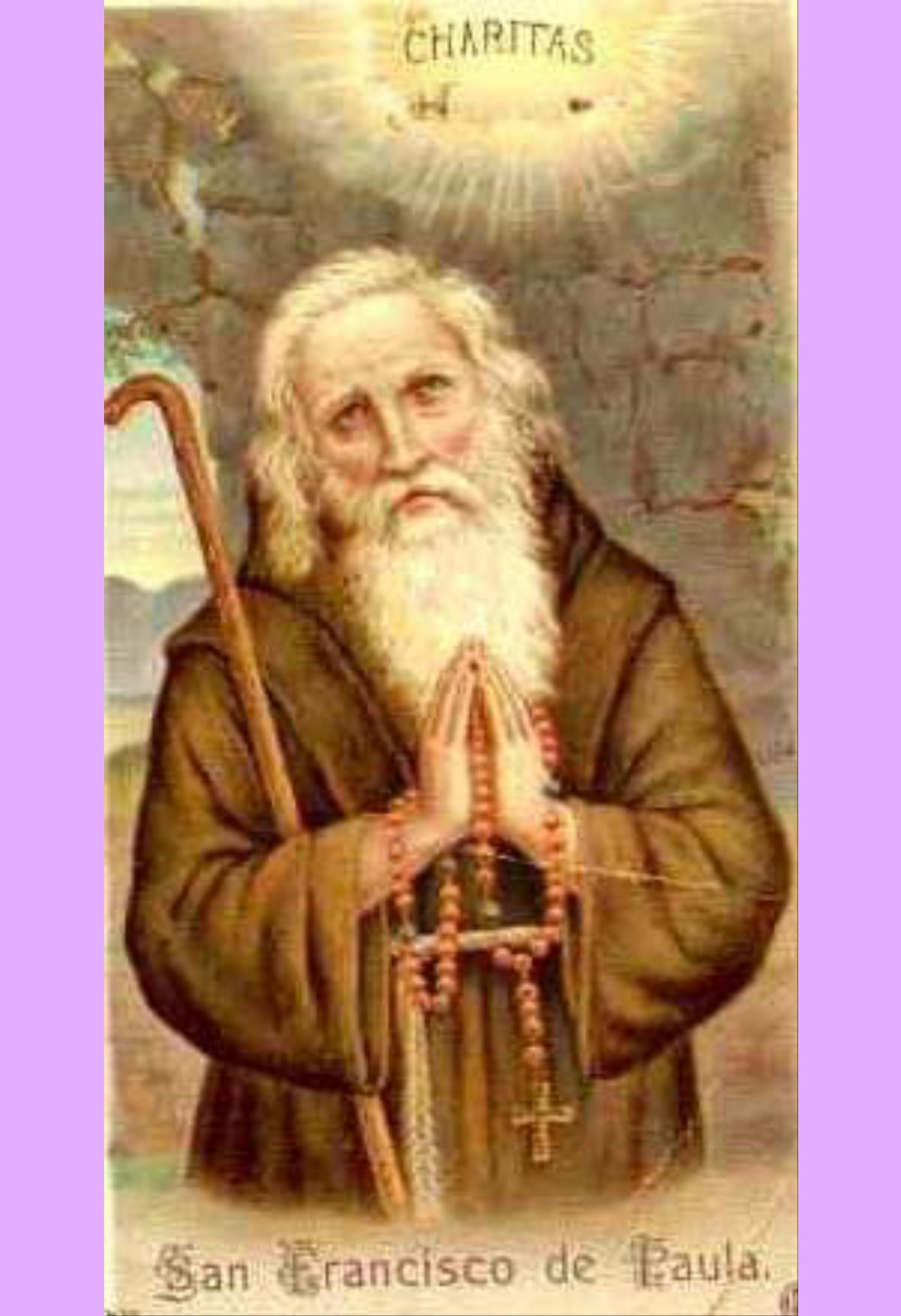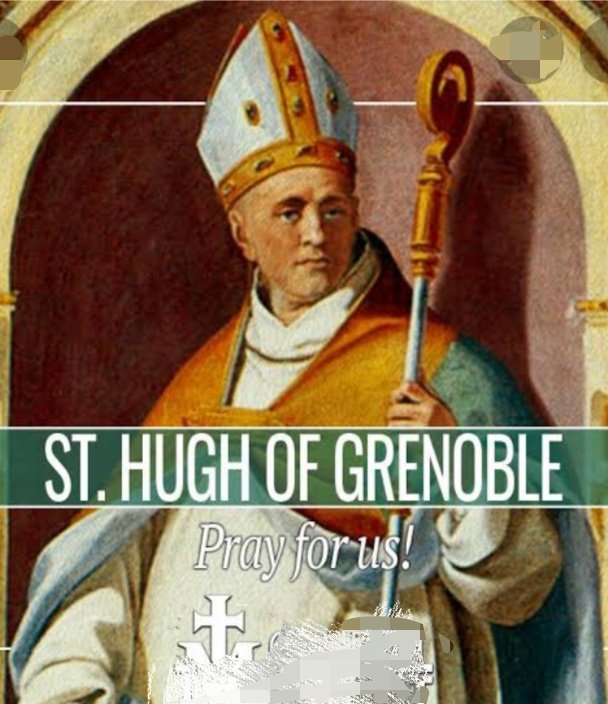FEAST OF SAINT DALLÁN FORGAILL
FEAST DAY – 29th JANUARY
Saint Dallan’s given name was Eochaidh, his father was Colla, a descendant of the legendary High King Colla Uais, and his mother was Forgaill. His nickname, Dallán, was earned after he lost his sight, reputedly as a result of studying intensively. He was born at Maigen in the north-west of modern County Cavan. He was not a member of the Masraige but belonged to a branch of the Airgíalla called the Fir Lurg, who were in the process of spreading southwards into modern-day County Fermanagh and County Cavan. He was a first cousin of Saint Mogue. He was also a fourth cousin of Tigernach of Clones.
The Amhra Coluim Cille, a panegyric on Columba, written shortly after Columba’s death in 597, is his best known work, and considered “one of the most important poems we have from the early medieval Gaelic world”. It is reported that after completing the work, Dallan regained his sight. It was claimed that those who recited the praises of Columba from memory would receive the gift of a happy death, a custom that was widely abused by those who attempted to rely on their memory rather than a virtuous life. The “Amhra Coluim Cille” or Eulogy of St. Columba, and, traditionally, “Rop Tú Mo Baile”, or “Be Thou My Vision”), became his best known work, and a popular text in Irish monasteries.
The “Amra Senáin”, a funeral oration, was said to preserve from blindness those who recited it with devotion. In c.640 Dallan was visiting his friend Saint Conall Cael at his monastery on Inishkeel when pirates raided the island monastery. Dallan was reportedly beheaded, and it is said that God reattached his head to his body after he was martyred. He was buried on Iniskeel and his friend Canall Cael was later laid to rest in the same grave.
He was acclaimed a saint in the early 11th century, during the reign of the High King of Ireland Máel Sechnaill mac Domnaill but was already listed as a saint in the earlier 9th century martyrologies compiled by Óengus of Tallaght. A medieval poem entitled “On the breaking up of a School” composed by Tadhg Og O Huiginn, c.1400, refers to the death of Dallán which caused his school to break up and the students to disperse as they would accept no other master. In a list of ancient Irish authors contained in the Book of Ballymote, Dallán is called “grandson of testimony”.
Saint Dallan was a poet, Chief Ollam of Ireland, as well as a scholar of Latin scriptural learning. He helped to reform the Bardic Order at the Convention of Drumceat. In addition to “Amra Choluim Chille” and “Amra Senáin”, there are other works attributed to Dallán, although some may be later works by other poets who credited Dallan with authorship in order to make their poems famous. Although he was not a priest, Dallán founded several churches throughout Ireland. Because of this, he was known as Forgaill Cille in medieval texts, meaning ‘Forgaill of the Churches’. Saint Dallán is the Patron Saint of Ireland.
PRAYER
Almighty Father, in veneration of Saint Dallán Forgaill, on his feast day today, we pray that the exceedingly devout manner of Saint Dallán whose poems reflected his dedication to you, may be followed by us, to restore our faith in your providence and restore the sight of those who, having eyes, yet do not see the wonders of your being, as Saint Dallán did.
We ask this through our Lord Jesus Christ your Son, Who lives and reigns with you in the unity of the Holy Spirit, one God forever and ever. Amen
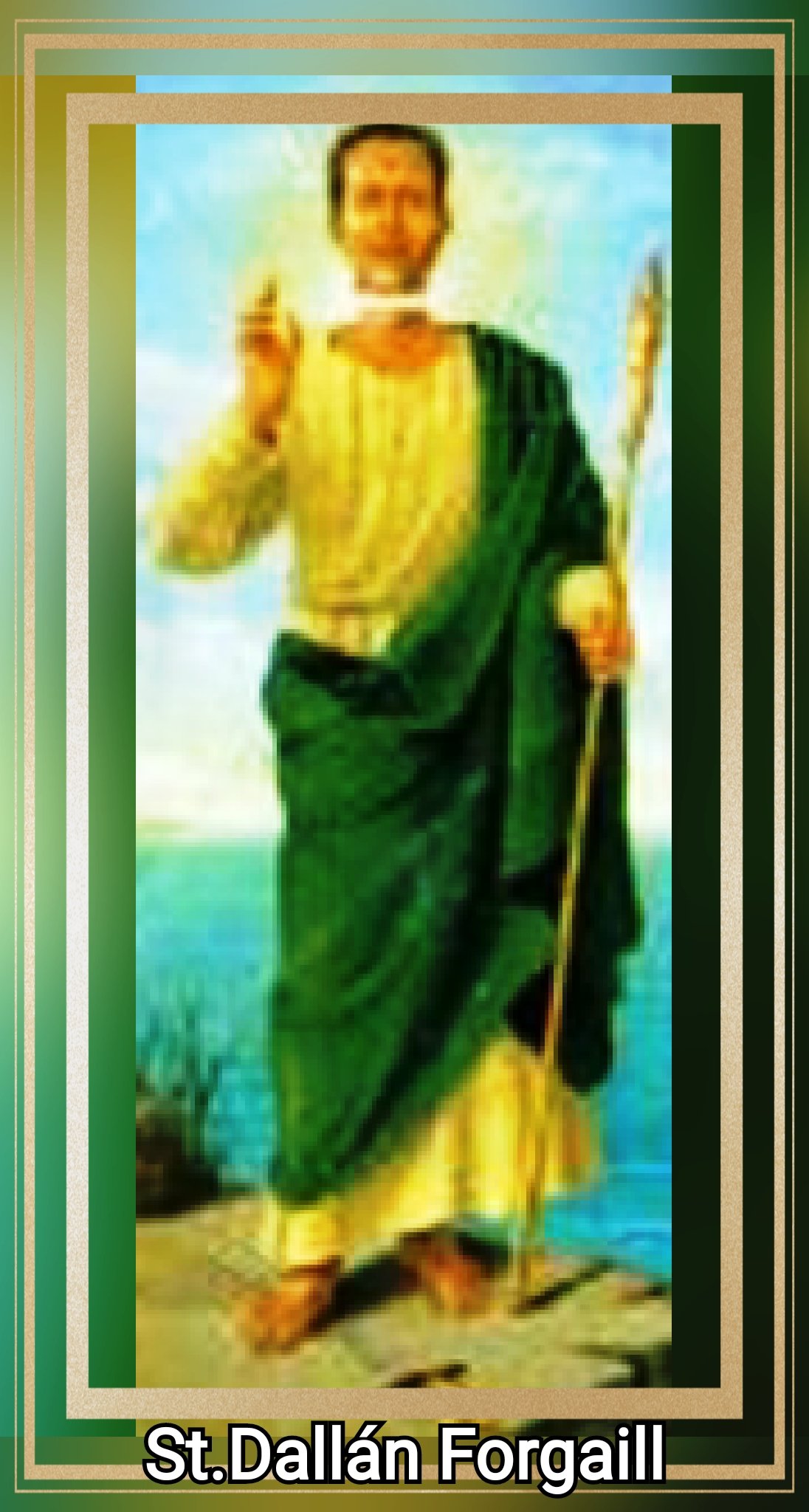
Saint Dallán Forgaill, pray for us.
++++++++++++++++++++++++++++++++++
ALSO CELEBRATED
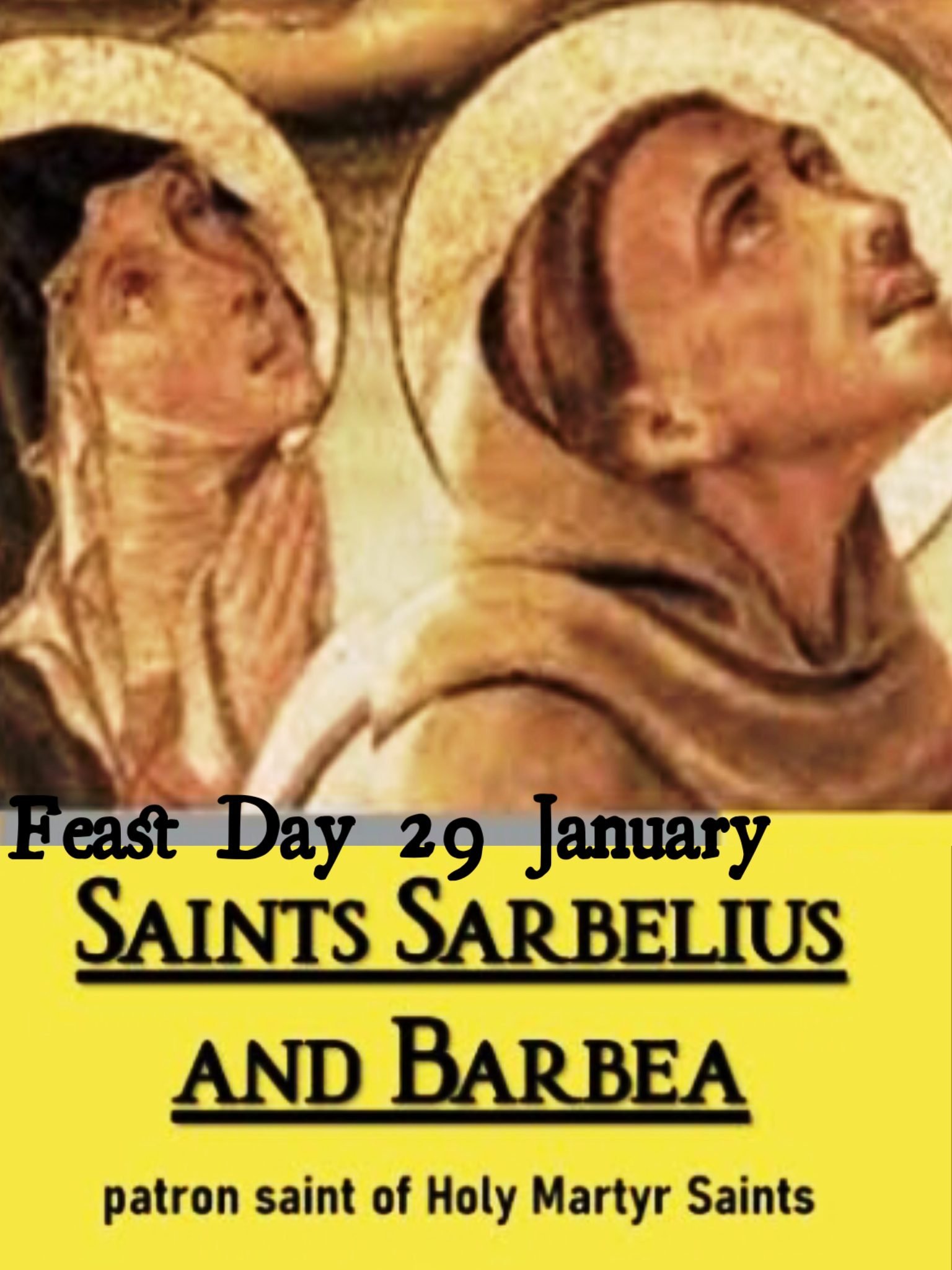
SAINTS SARBELIUS AND BARBEA, MARTYRS – FEAST, 29 JANUARY
Saints Sarbelius and Barbea, brother and sister, are early 2nd century Christian martyrs venerated by the Roman Catholic Church and Eastern Orthodox Church. Sarbelius, also called Sharbel was a high priest of the idol-worship of Edessa in Mesopotamia. They were tortured and killed for converting to Christianity under the Roman emperor Trajan. They were tortured with red-hot irons prior to execution.
Trajan, in the 15th year of his reign (also described as the 3rd of Abgarus, the 7th king, and the 416th of the era of Alexander the Great), commanded the rulers of the provinces to see that sacrifices and libations were renewed and increased in every city, and to punish with torture those who refused to take part.
Barsimaeus, the bishop of the Christians, accompanied by a priest and deacon, thereupon waited on Sarbelius and warned him of his responsibility in leading so many to worship gods made with hands. They briefly told him of the doctrine concerning our Lord’s Incarnation and death, taught by Paluth, the disciple of Addai the apostle, and believed in by the earlier king Abgarus.
Sarbelius was at once converted, baptized that night, and made his appearance next day clad in his baptismal robes. A great multitude, including some chief men of the city, were converted with him. The Acts then relate how the governor Licinius brought Sarbelius before him and commanded him to sacrifice. As each form of torture was tried without success, Licinius ordered a new and more severe one, 18 being described.
Finally, Sarbelius was put to death with new tortures, being partially sawn and then beheaded, his sister Barbea being martyred with him. There are separate Acts of Barsimaeus, evidently by the same hand. They relate how he, after the martyrdom of Sarbelius, was brought before the tribunal and similarly tortured. But a letter, ordering persecution to cease, arrived from Trajan, who had been convinced of the excellence of Christian morality and of the general agreement of their laws of conduct with the imperial laws.
PRAYER
Almighty Ever-living God, who chose what is weak in the world to confound the strong, mercifully grant, that we, who celebrate the heavenly birthday of your Martyrs Saints Sarbelius and Barbea, may follow their constancy in the faith. Through our Lord Jesus Christ, your Son, who lives and reigns with you in the unity of the Holy Spirit, God, for ever and ever. Amen
